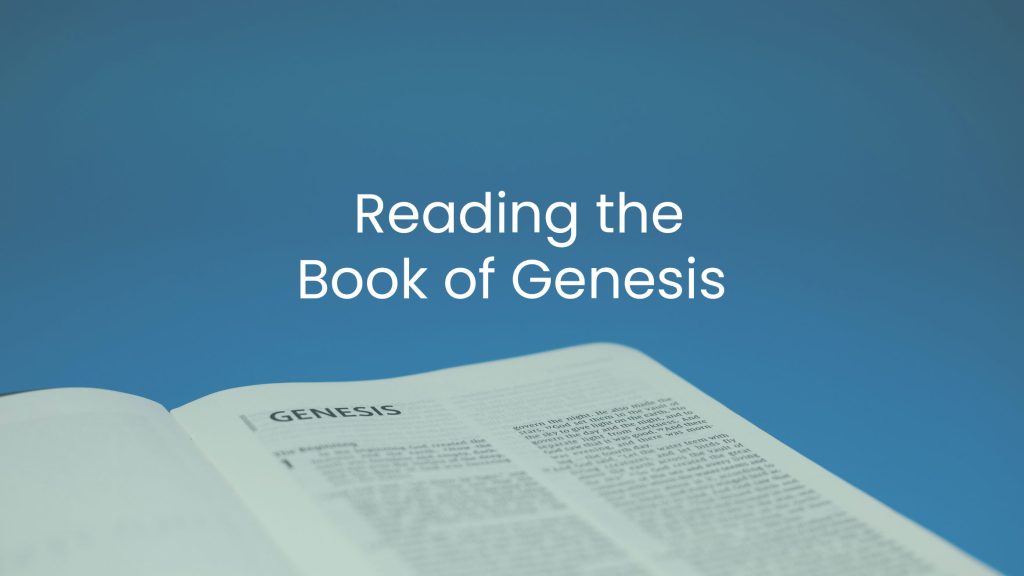|
Getting your Trinity Audio player ready...
|
No book in history gives us more insight into the origins, problems, and redemption plans of God than the Book of Genesis.
The Book of Genesis is scientific. . .
In the beginning, God created the heavens and the earth (1:1, NASB).
For 3,500 years, the Bible has taught the concept of sudden creation. Modern science, advocating an eternal universe, has recently caught up with the Bible’s science, admitting everything began at once — energy, matter, and even time!
The Book of Genesis is theological and philosophical. . .
Then God said, “Let Us make man in Our image, according to Our likeness (1:26).
Singular “God” saying, “Let Us,” is an early indicator of the Trinity. It explains God as Love because love demands an object, and God is Love in the form of three-in-one. If God existed as a singular entity, love would demand an object, thus necessitating God’s creation of us to be Love.
The greatest difficulty in philosophy is the “one and the many” or the relationship of unity and plurality and how to reconcile these two perspectives. The Trinity solves this problem.
There are four major sections of Genesis, each with its own emphasis.
First: Chapters 1 through 11: the Creation, the fall of the human race, and the flood.
No one knows the exact time frame from Genesis chapters 1-11. Let’s just say a long time, but only a few verses in these chapters explain the difficulties described in these chapters and the underlying reason for war, psychological pain, and suffering throughout human history.
When the woman saw that the tree was good for food, and that it was a delight to the eyes, and that the tree was to be desired to make one wise, she took of its fruit and ate, and she also gave some to her husband who was with her, and he ate (3:6).
Second: Abraham in chapters 12 through 25.
Beginning in chapter 12 with Abraham, the Book of Genesis focuses on Abraham, Isaac/Jacob, and Joseph. I love how Genesis moves from theological, philosophical, and vast stretches of history to focus on God’s dealing with a few individuals.
God is relational. He works His purposes and influences history through “called” individuals who become examples for all of us.
With Abraham, we learn God’s plan to overcome sin through one nation. God said to Abraham. . .
Go forth from your country and from your relatives and from your father’s house to the land which I will show you; And I will make you a great nation, and I will bless you, and make your name great; and so you shall be a blessing (Genesis 12:1-2).
And how did Abraham respond, as the Book of James says 1,500 years later. . .
Abraham believed God, and it was counted to him as righteousness, and he was called a friend of God (James 2:23).
Third: Isaac/Jacob, chapters 25 through 36.
What a group of characters in Genesis 25 — Jacob (Isaac), Esau, Laban, Rebekkah, Leah, and Rachel — but the focus is Jacob. I’ve often thought, “If God can use conniving, sometimes out of control, but good-hearted Jacob, He can use me too.”
And you!
I love the story of Jacob wrestling with God, surviving, and after a night of struggling, God said to Jacob. . .
Your name shall no longer be Jacob, but Israel; for you have striven with God and with men and have prevailed (Genesis 32:28).
Fourth: Joseph, chapters 37 through 50.
Who can forget the coat of many colors, sold into slavery, betrayed by Potiphar’s wife, thrown into prison, and delivered from this jail to rule over Israel?
One of my favorite verses in the entire Bible is spoken by Joseph in summary of his life to his brothers. . .
As for you, you meant evil against me, but God meant it for good, to bring it about that many people should be kept alive, as they are today (Genesis 50:20, ESV).
This verse, reflected by Paul in 2 Timothy 2:3-4, sums not only Genesis but the entire purpose of the Bible and God’s purposes in history.
This is good, and it is pleasing in the sight of God our Savior, who desires all people to be saved and to come to the knowledge of the truth.
Let’s read and understand the Book of Genesis!

